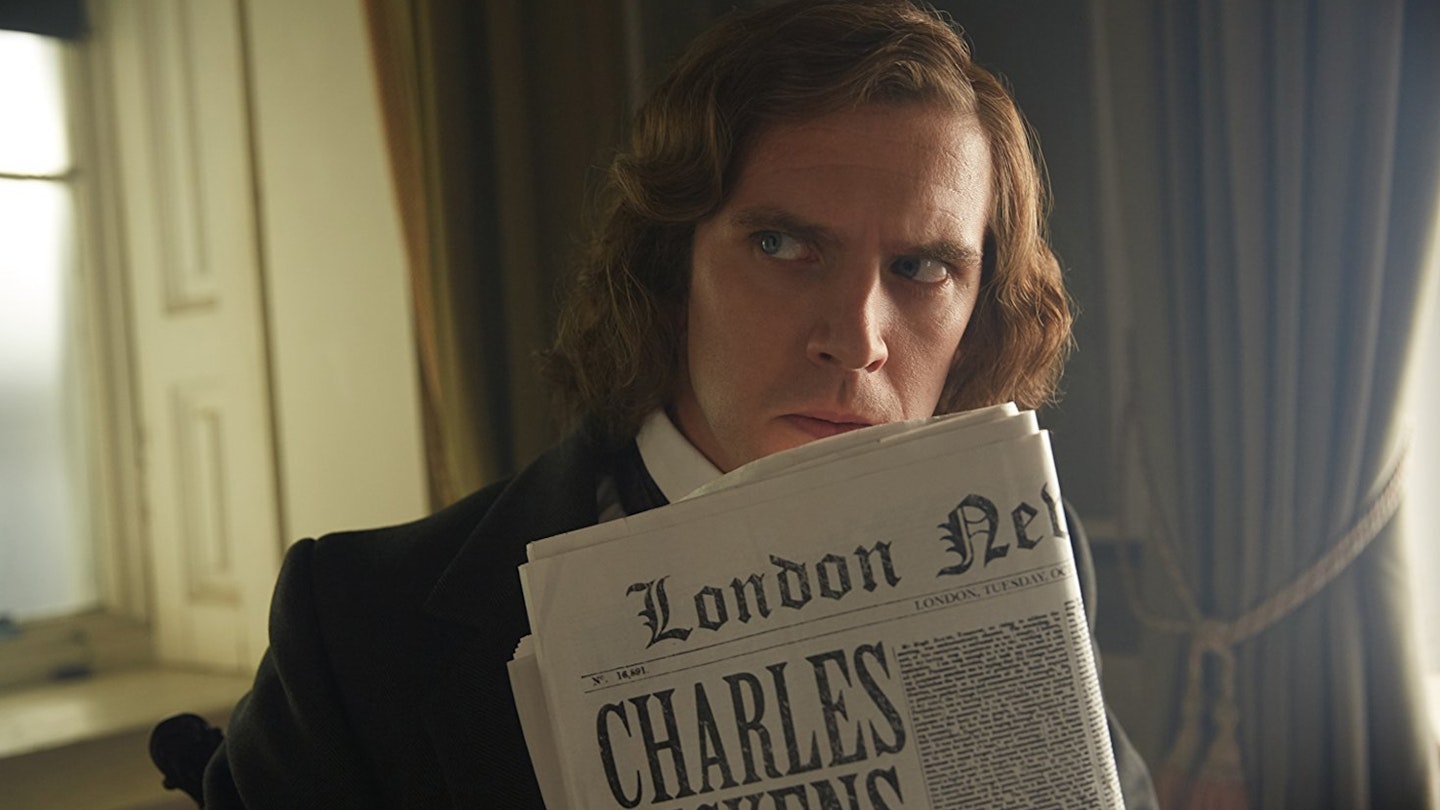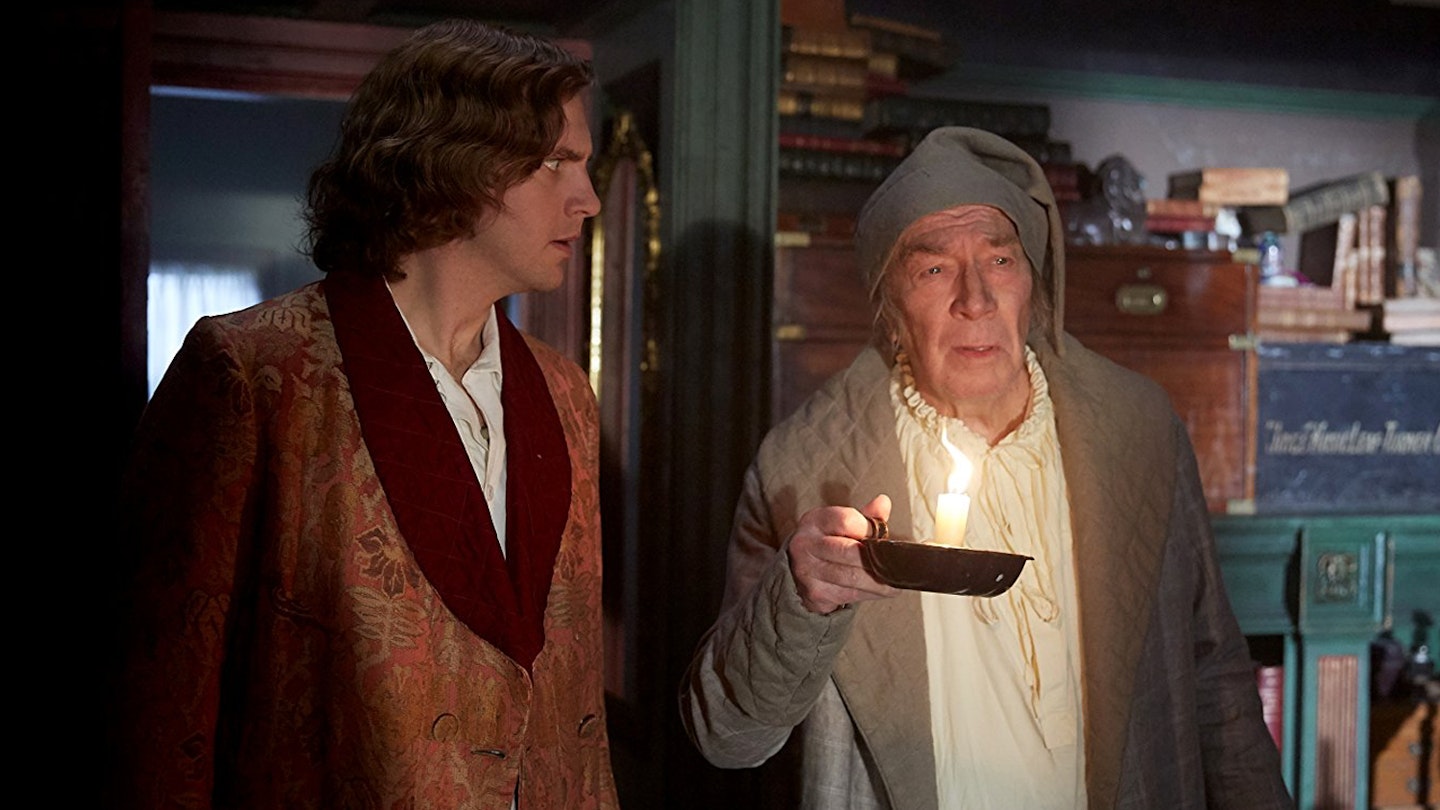Cinematically capturing the creative process has always been a tricky business. From The Doors to Shakespeare In Love, more often than not it’s led us into that cheesy territory where everything all-too-neatly falls into place with an “I got it!” eureka moment. Which presents a pitfall you’d think director Bharat Nalluri (Miss Pettigrew Lives For A Day) and writer Susan Coyne might have avoided when adapting historian Les Standiford’s account of A Christmas Carol’s birth. But it’s a pitfall they appear to have happily jumped into with both feet.

“Get the name right,” Dan Stevens’ Charles Dickens explains at one point during The Man Who Invented Christmas, “and if you’re lucky the character will appear.” What then follows is Stevens pacing around in his study, chewing over potential monikers (“Scrimple? Scrunge?”) for his troublesome new novel’s protagonist. Until he faces the camera with a look of revelatory joy, spreads his arms wide and announces, “SCROOGE!” A light flashes, a blast of wind sends his Victorian locks flailing, and Scrooge himself manifests in the scowling form of Christopher Plummer. Yep. He got the name right and the character literally appeared.
There is a perky, winking lightness of touch for most of the film.
How much you enjoy Nalluri’s film is entirely dependent on how easily you can swallow such Cheddar-scented narrative concoctions. As Dickens walks the streets of 1840s London (or, thanks to Nalluri’s obviously limited budget, street), he snatches shiny fragments of inspiration like a gentlemanly magpie: an aged waiter at The Garrick Club who gives his name as Marley; a chain-draped safe in the office of a dour solicitor; his own crutch-dependent, coughing Tiny Tim of a nephew.
There is a perky, winking lightness of touch for most of the film which in truth makes it largely palatable. It’s just a bit of festive cheer; nothing to take too seriously. After all, Cheddar tastes great with a bit of Christmas cake. This is only encouraged by Stevens, who plays the fussy, arrogant but socially crusading novelist as if he has one foot planted in parody, with every mannerism and facial twitch turned up just a notch. Particularly during the most meta scenes where Dickens’ phantom characters crowd around him, fronted by Plummer’s sneering Ebenezer, and goad him for his faults as an author. (“Shut it, or I’ll make you bald with bad teeth,” Dickens snaps back at his creation.)
However, when the story strives for drama, it falls flat. Despite a twinkly turn from Jonathan Pryce as Charles’ spendthrift dad, the undercurrent of father-son tension feels tacked on and soapily insubstantial. As do the flashbacks to Dickens’ own troubled past as a bullied factory boy — an element whose precise relevance Nalluri struggles to nail down.
Despite its talk about the importance of getting the name right, the film also fails to live up to its own title. There are mentions that, at the time, Christmas was just considered “a minor holiday”, and not celebrated in the way it is today — our modern Yuletide obsession being down to A Christmas Carol’s huge success, an end-title note suggests. But this idea is never properly explored and feels little more than a footnote to a tale which, essentially, is just a popular novel’s origin story, told with a touch of panto.

